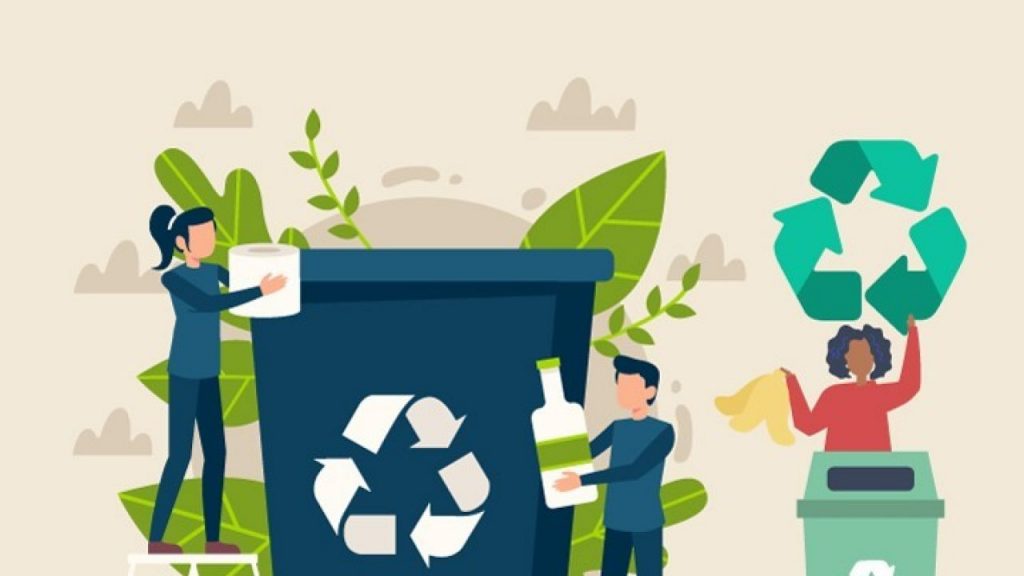Why Waste Management Is Important For Everyone?
4 min read
Waste Management san Diego CA involves the activities and steps needed to deal with waste from an early initiation to its disposal at the end. This entails the collection, transportation, processing, treatment and disposal of waste. The management also involves the reduction of waste that would otherwise be generated in a market. This also involves the recycling or the utilisation of waste to some extent. It also involves ensuring the safety of the waste by ensuring cleanliness at work and in the surroundings.
Waste management involves many activities and initiatives of various sizes and types, all of which are geared towards waste management. They can be municipal, regional, personal, institutional or private in nature. Most municipal programmes focus on waste management through the implementation of legislation. There is a need for an increase in public awareness and education about this matter, particularly when it comes to the hazards associated with waste and the necessity for waste management. Public health and safety become a major issue when waste is disposed of in careless or in large quantities.
Some waste management involves the construction of solid waste storage sites. Solid waste management also involves sewage treatment plants, landfills and recycling centres. Other activities include composting, home waste disposal and land filling. Some countries even have their own laws pertaining to waste disposal. These include laws on solid and waste paper.
This main article aims to provide an introduction on waste management, focusing on its effects on the environment. We briefly examine what waste management is, the types of waste that needs to be dealt with, its components, what causes it to cause pollution, and finally what its effects are. Then we move on to the main article. Finally, we discuss why it is important to deal with waste as safely and efficiently as possible. The article ends with a brief review of some further reading, you may want to consider.
The first section of this main article looks at waste management by looking at its various dimensions. We look first at its source and how it is disposed of. We then look at its sources and how it affects the environment. Finally, we look at the three bodies that constitute the body of waste management, namely the environment, industry and public sector.
The second section looks at waste management practices in developing countries. Developing countries make up most of the world’s poor population. As a result of these poor people’s inability to afford high-tech life-saving equipment, waste management practices are hardly undertaken. Health and sanitation issues are relatively ignored. The third body of waste management is industrial waste. Developing countries are unable to afford industrial waste disposal systems that would allow companies to discharge their toxic wastes without creating a hazard for the public.
The fourth section looks at recycling and waste management practices for developed countries. It shows that although countries have a legal requirement for recycling, there is often little voluntary effort to recycle. This lack of recycling means that most of the waste is simply dumped into the environment. Many of these waste products are toxic. Recycling is a voluntary activity for developed countries.
The fifth and final part of this article looks at effective waste management. It describes different waste disposal systems and how they can be used to decrease a country’s waste and improve its health and environment. It also describes how recycling and other forms of waste management can help to meet these needs.
Developing nations need to address waste management practices that require them to reduce the amount of non-recycled waste that they produce and that they dispose of. Some developing countries, for example, recycle everything they produce except those made of aluminum and rare metals, which are considered too expensive to re-use. Other developing countries focus on household waste management. However, it’s difficult for them to get the resources they need to implement effective waste management.
This article has introduced an important topic that should be considered in waste management solutions. Waste management is a necessary part of all industries. However, most industries only look at the “visible” side of waste management. This article has described waste management practices needed for businesses and organizations that want to reduce their impact on the environment, generate good public relations and increase their resource efficiency.
Now that you have learned about waste management and why it’s important for everyone to think about it, what is your next step? Do you have a plan? Are you prepared to act? Take action today! By reducing your impact on landfill sites, you can help keep our valuable ecosystem intact.






